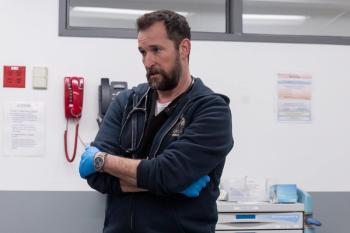
Fears of fallout from Supreme Court ruling upholding Tennessee ban on gender-affirming care
Critics say the measure could make it harder for transgender youth to get care. Tennessee’s attorney general says the ruling protects kids from ‘life-altering’ procedures and helps other states set similar laws.
The Supreme Court has upheld a Tennessee state law barring minors from receiving gender-affirming care, and critics and supporters of the ruling agree that the decision has far-reaching implications.
In a 6-3
More than half the states have enacted laws restricting gender-affirming care to minors, and in 24 states, healthcare professionals can face legal and professional consequences for providing such care, according to an analysis by
Tennessee Attorney General Jonathan Skrmetti said in a
“And every state has the opportunity to make its own decision about what their law should be,” Skrmetti said.
Healthcare organizations argue that laws denying such care won’t protect children, and they said such bans could endanger the health and lives of young people with gender dysphoria.
Lawrence Gostin, co-faculty director of Georgetown University’s O’Neill Institute for National and Global Health Law, said that restricting healthcare services for transgender minors clashes with the equal protection clause in the constitution.
“It’s jaw-dropping to see a majority of Supreme Court justices turn a blind eye while transgender minors are flatly denied access to health services in consultation with their doctors,” Gostin said in a statement.
“The Court is greenlighting red state laws that will deeply affect the lives of marginalized and victimized people seeking healthcare, social acceptance, and dignity,” he added. “This decision paves the way for additional restrictions on other essential but politically fraught services, notably within sexual and reproductive health.”
What the justices said
The case centered around
Writing the opinion for the majority, Supreme Court Chief Justice John Roberts acknowledged that the case posed difficult questions.
“This case carries with it the weight of fierce scientific and policy debates about the safety, efficacy, and propriety of medical treatments in an evolving field,” Roberts wrote.
But Roberts added that the high court’s role is “only to ensure that the law does not violate equal protection guarantees. It does not. Questions regarding the law’s policy are thus appropriately left to the people, their elected representatives, and the democratic process.”
Even though a host of medical groups filed a court brief opposing Tennessee’s law, Justice Clarence Thomas indicated that the majority of the justices weren’t convinced that gender-affirming care has the full backing of physicians. Thomas wrote that the Biden administration’s claims that strong medical evidence supports the use of puberty blockers and hormone therapy are “untenable.”
“The treatments at issue are subject to a rapidly evolving debate that demonstrates a lack of medical consensus over their risks and benefits,” Thomas wrote.
Justice Sonia Sotomayor, who wrote the dissenting opinion, said the majority erred on the law and wrote that the consequences for young transgender people would be devastating.
Sotomayor wrote that the Tennessee law clearly discriminates against medical treatment on the basis of sex but “the majority refuses to call a spade a spade.” She wrote that the law allows male adolescents to get medications “that help them look like boys,” while female adolescents can get medicine “that help them look like girls.”
She said that the high court’s ruling “invites legislatures to engage in discrimination by hiding blatant sex classifications in plain sight.”
“It also authorizes, without second thought, untold harm to transgender children and the parents and families who love them,” Sotomayor wrote.
‘A huge disappointment’
Healthcare organizations, including the American Medical Association and the American Academy of Pediatrics, argued that gender-affirming care offers valuable assistance for young people struggling with their gender identity. They said that in the appropriate cases, gender affirming care can help improve the mental health of transgender youth and reduce the risk of suicide in young people who are struggling.
In
“In light of this evidence supporting the connection between lack of access to gender-affirming medical care and lifetime suicide risk, banning such care can put patients’ lives at risk,” the AAP concluded. More than two dozen other medical organizations signed onto the brief in support.
Anthony Wright, executive director of Families USA, a group which has criticized the Trump administration’s healthcare policies, said the court’s ruling is a loss for trans youth and warned that all Americans could be affected.
“This decision gives politicians and judges a green light to dictate what care we can and can’t receive, regardless of what we and our doctors know we need,” Wright said in a statement. “Beyond just impacting trans youth, the Supreme Court has now imperiled everyone's access to lifesaving, evidence-based health care.”
New York Attorney General Letitia James said in a
“Gender-affirming care is legal and protected in New York, but I want the transgender community in Tennessee and beyond to know: I stand with you,” James said in a statement.
U.S. Sen. Roger Marshall, a Kansas Republican and a physician, praised the court’s ruling. Marshall said in
The ruling comes after
Mehmet Oz, MD, the administrator of the Centers for Medicare & Medicaid Services, has also told states that





























































































